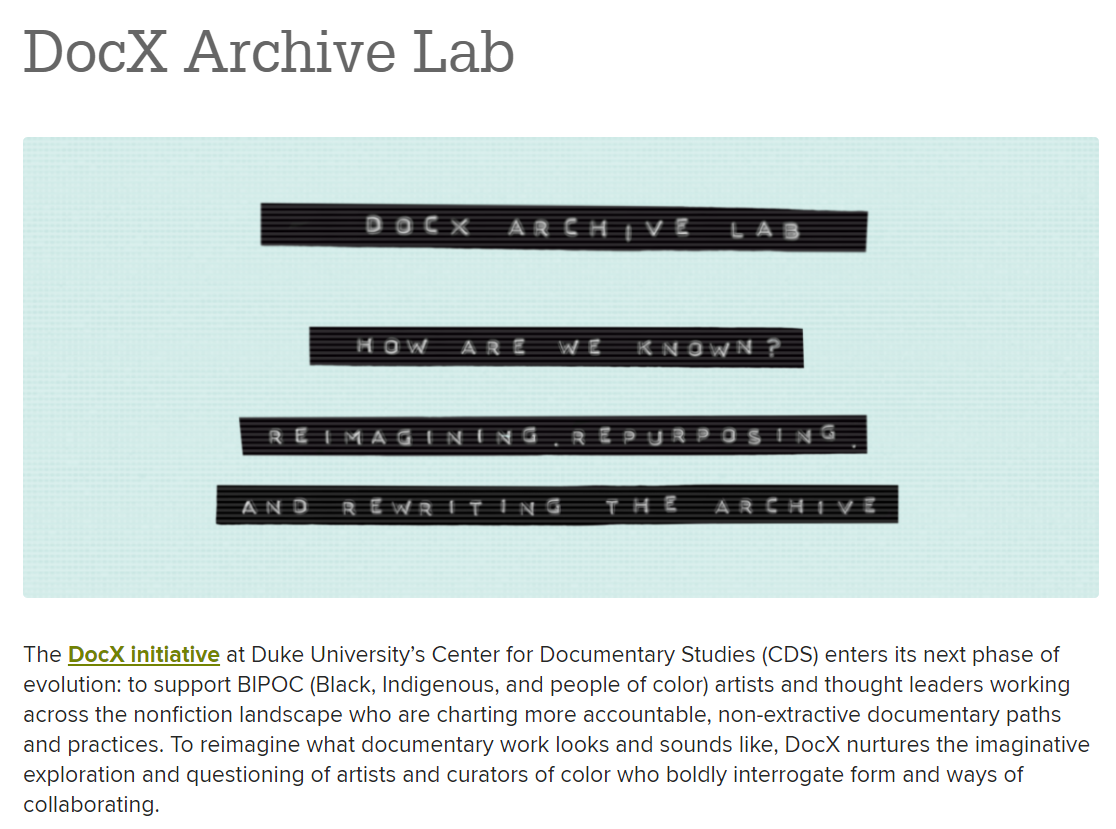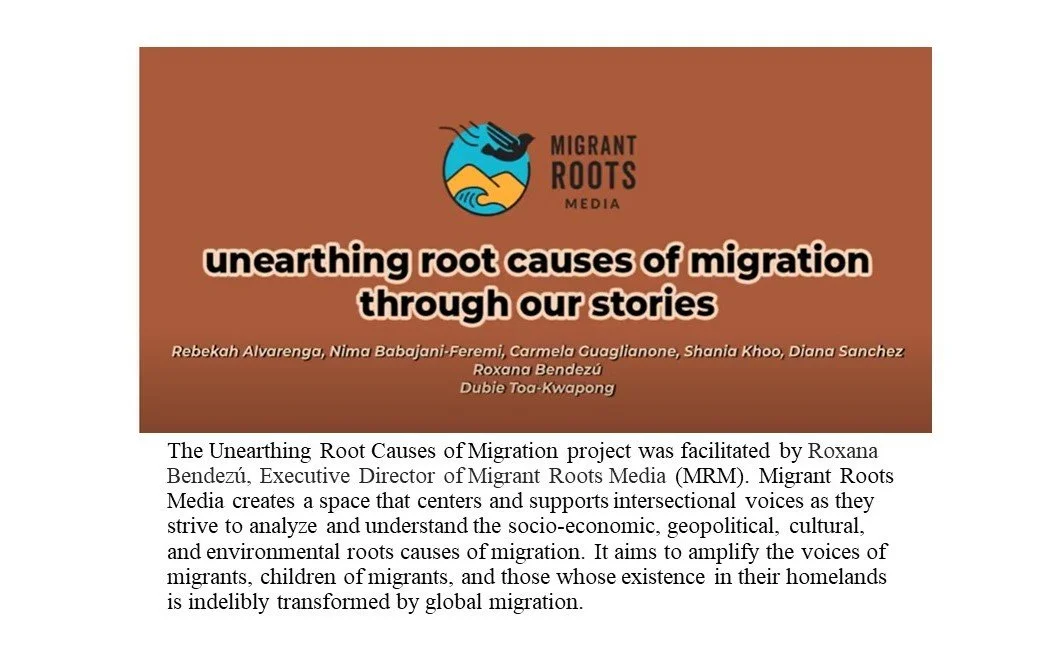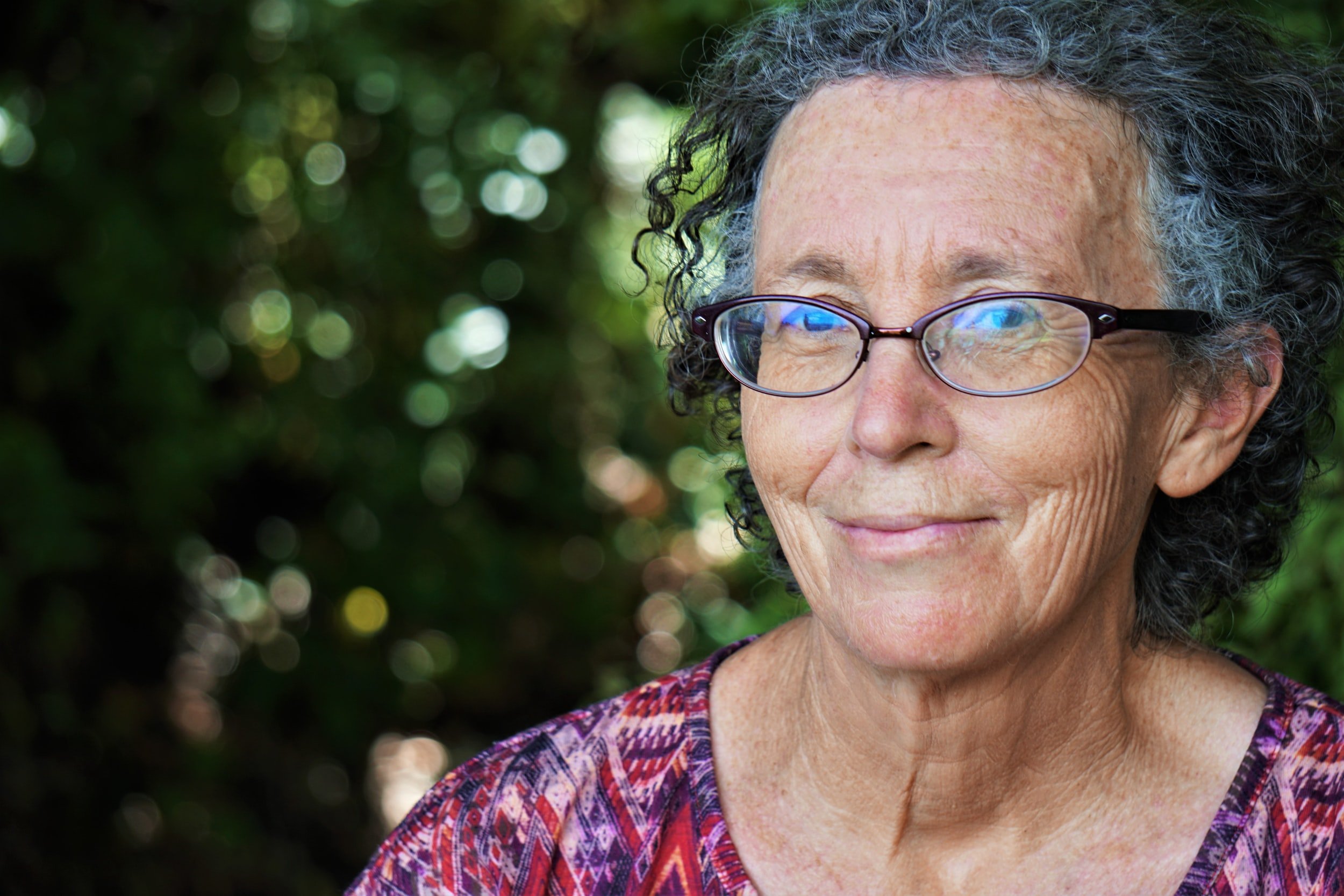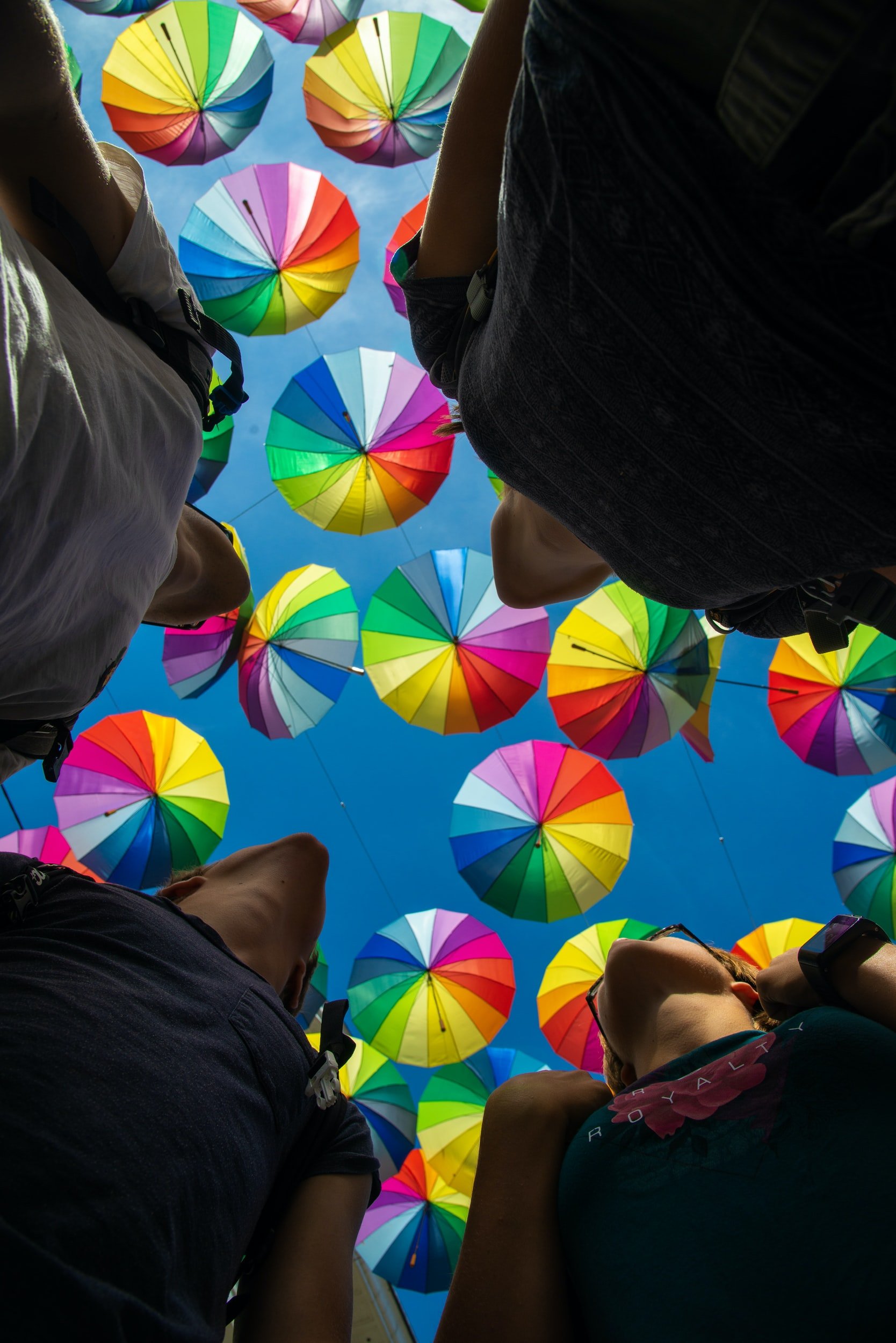“Expertise,” Positionality, and Interfacing with Community
by Dubie Toa-Kwapong and Brittany Green
Collaboration is the theme for October 2022 on SAGE Methodspace. Researchers often collaborate with community partners, as discussed in this guest post from PhD candidates from Duke University’s Cultural Anthropology and African American Studies programs.
Introduction
During the 2021 session of Duke University’s Story+ program, co-directors Amanda Starling Gould and Jules Odendahl-James invited graduate project managers to share the methodological discussions we wanted to foreground during community-building meetings. As returning graduate fellows, we recalled conversations with our research teams in the aftermath of the murder of George Floyd by police officer Derek Chauvin in Minneapolis in June 2020. Our respective teams – Unearthing Root Causes of Migration (facilitated by Roxana Bendezú and Bárbara Sostaita, Migrant Roots Media) and The Experiential Archive (facilitated by Aaron Kutnick, DocX Lab Center for Documentary Studies at Duke University) – included several indigenous or “insider-outsider” researchers. We interrogated how social science and humanities researchers might contribute to an overdue reckoning with academia’s longstanding complicity in reproducing structural inequality and the violence of white supremacist logics.
Our dialogues drew on the methodological explorations of Zora Neale Hurston (1931), Laura Mulvey (1989), bell hooks (1992), and Audra Simpson (2014), among others, on positionality and interactions that blur binary framings of researcher and interlocutor. Through unpacking assumptions about expertise, we welcomed the opportunity to facilitate a conversation with Story+’s community of researchers, project managers, and community partners about the taken-for-granted epistemic dynamics in research relationships.
Positionality and investigating definitions of expertise
We began by sharing a series of questions with the Story+ community. The first question – What does an expert look like? – prompted a collective brainstorm on the words “expert” and “expertise.” Using Google's Jamboard feature, we asked community members to share, without self-censoring, the images these words conjured: What gender, race, or ethnicity do you associate with expertise? What socio-economic position? Where do experts come from and live? How do they dress? These questions facilitated candid reflections and critiques on the bodies and lived experiences we are socialized to attach to expertise and perceived incompetence. Next, we investigated knowledge practices and their perceived associations with expertise. What kind of work does an expert do? – What methods and modalities do experts work in and with? Where does an expert work? Together we interrogated the forms of knowledge and labor we are socialized to associate with “experts.” Lastly, we considered how sharing of knowledge is (or is not) registered as expertise; reflecting on our expectations of “proper” presentation of research findings.
Our discussion revealed assumptions that experts are typically white cisgender-heterosexual (cishet) males from socioeconomically advantaged family backgrounds. They are adults over the age of forty years and hold terminal degrees administered by Western academia. These credentials are considered proof of their expertise, regardless of their relevance to the communities they work with. They wear suits and don’t have tattoos, piercings, or colorfully-dyed hair. They are often university professors who center reading and writing as primary modes of learning, are unbiased or objective in their approach. They share of their knowledge through lectures and published work in respected Western academic or popular journals. Some members suggested that experts function as models of social behaviour and are in a position to correct and advise others. Others pondered on expertise as expressed through active listening and storytelling rather than “taking up a lot of space in the conversation.”
Working with interlocutors as institutional representatives
With the expertise archetype that emerged, we invited reflection on another question: Who is excluded from the category of “expert” and why? This question initiated a dialogue about how perceptions of expertise – who fits into popular images of this category and who does not – shape the ways researchers engage the knowledge of our interlocutors and community partners. Responses to this included: people without academic degrees (“even if they are more than qualified”), people who work or study at universities or institutions that are not considered “elite” or “high status,” people “kept out of educational spaces due to inequity” or whose work is not recognized by academia, and young people or children. Privileging the expert archetype (white cishet male, over forty) often results in the knowledge systems of elders from geographically and politically peripheralized communities being devalued unless filtered through the pens of Western researchers. We discussed how citizenship and language influence understandings of expertise, with the contributions of non-native speakers of English or other Western European languages being diminished or unnecessarily re-translated through Euro-American knowledge systems.
We also considered how this affects researchers studying communities they belong to, share socio-historical experiences with, or whose racialized-gendered-socioeconomic positionalities unsettle the expertise archetype in some way. We read anthropologist Ampson Hagan's article “On Not Looking Like An Expert: Being Black and Doing Research in Africa, White People’s Historical and Theoretical Turf” (2019) to examine how the entrenched association of expertise with objectivity situates some researchers as intruders in spaces dominated by white European or American researchers. This emphasis also advances the troubling idea that rigorous scholarship is primarily (if not exclusively) produced by researchers who are outsiders to the communities, cultures, and topics they study.
Reconfiguring our methodological and citational practices
How, then, does this shape the ways researchers across disciplines engage the knowledge community partners and interlocutors share with us? And, regardless of positionality, how do researchers as institutional representatives reinforce racialized, gendered, and classed epistemic hierarchies? We wanted to think with the Story+ community about how conscious and subconscious attachments to colonial methodological and citational practices in academia continue to obscure not only the work of marginalized scholars within academia but also the extensive and rigorous contributions of our interlocutors outside academia.
Efforts to decolonize social sciences and humanities research methods are becoming increasingly robust. While researchers from varied backgrounds are dedicated to this work, the perception of the white Global North as the center of knowledge creation persists. Sociologist Sylvia Tamale cautions against the uncritical application of Euro-American research concepts and social categories to non-Western contexts. Drawing on critical methodologist Linda Tuhiwai Smith (1999), Tamale explains that to reconfigure methodological, citational, and archival practices, we must come to terms with the enduring coloniality of “research” itself, the extent to which layered social positionalities are “critical in determining the usefulness and validity” (13) of researchers’ contributions. They remind us to continually re-identify the power dynamics that undergird humanities and social science data-gathering. We cannot decolonize that which we do not acknowledge as fundamentally colonial.
Guide of considerations for community-based projects
By collectively examining our positionalities as Duke University scholars entering communities with which we may or may not be associated, we arrived at four considerations for building more reflexive research relationships with community stakeholders.
How are we showing up to conversations with interlocutors? As insiders? Outsiders? Academics? Experts or authority figures?
How does this shape our working relationships with interlocutors? How can we co-create more just research environments where interlocutors are – and feel – heard and valued for their expertise?
How are we attenuating the violence of separating lived experiences from people?
How are we holding space for non-Western and/or non-academic modes of thinking and knowledge-production central to the communities we engage with?
Conclusion
At the start of your next community-based project or ethnographic research, we hope you consider facilitating open dialogue around expertise, positionality, and community with your team, interlocutors, and stakeholders to create more equitable and enriching experiences for all involved.
References
Hagan, Ampson. (2019). “On Not Looking Like An Expert: Being Black and Doing Research in Africa, White People’s Historical and Theoretical Turf.” Footnotes. https://footnotesblogcom.wordpress.com/about/.
hooks, bell. (2015). “Oppositional Gaze.” In Black Looks: race and representation, 115-132.. New York: Rutledge.
Hurston, Zora Neale. (2018 [1932]). Barracoon: The Story of the Last “Black Cargo. New York: Amistad Press.
Mulvey, Laura (1975). “Visual Pleasure and Narrative Cinema.” In Screen. Vol. 16, 6-18. Oxford: Oxford University Press.
Simpson, Audra. (2014). Mohawk Interruptus: Political Life Across the Borders of Settler States. Durham, NC: Duke University Press.
Smith, Linda Tuhiwai. (1999). Decolonizing Methodologies: Research and Indigenous Peoples. London: Zed Books.
Tamale, Sylvia. (2011). “Researching and Theorising Sexualities in Africa.” In African Sexualities: A Reader, Sylvia Tamale (eds.), 11-36. Nairobi: Pambazuka Press.






















Learning while doing: collaborating on a book about collaboration.